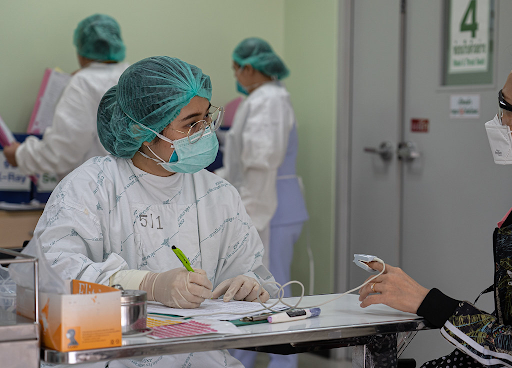If you are wondering how to get the most out of a doctor’s appointment, you have come to the right place. This article will help you understand the tips and tricks that you need to follow to make the most out of your visit.
Prepare a list of health concerns
If you are planning to visit the doctor for the first time, it’s a good idea to prepare a list of health concerns to get the most out of the appointment. This can reduce your chances of forgetting a critical question. By preparing a list, you’ll also be able to prioritize your questions.
The first step to preparing a list of health concerns is to make a note of the issues you have. You can do this by making a list of the symptoms you have, the medications you take, and the treatments you are receiving. A doctor can use this information to make an accurate diagnosis.
Another important step is to make a list of questions you would like to ask the doctor. You should bring a notebook with you to write down the answers to your questions. Don’t forget to bring identification, insurance information, and a family member with you.
It’s best to arrive at least 15 minutes early to your appointment to ensure there’s enough time for the nurse to perform a physical examination. Doing so can help you avoid stress and rushes.
Make sure to bring along the medicines you’re taking. This includes prescriptions, dietary supplements, and herbs. Also include the dosages you are taking and the names of the medications. Bringing bottles in a resealable bag can prevent confusion over what you are taking.
Lastly, you should let the doctor know about any changes in your medical history. For instance, if you’ve been treated in the emergency room, you should mention this to the doctor. Likewise, if you’ve been treated by a specialist, you should tell the doctor about any changes you’ve experienced.
It’s also helpful to record your appointments. Recording the date and time, and what your doctor said, can help you remember your appointments. There are some medical practices that allow patients to record their visits online. Using a patient portal can also allow you to check the results of your test.
If you have a friend or family member accompany you to your appointment, you may be able to remember what the doctor said. Having a second set of ears can be especially helpful for elderly people.
Take notes
If you are seeing a healthcare provider, it’s a good idea to take notes during the visit. This will ensure you remember important information about your health. It can also help you get the most out of your appointment. Whether you are a new patient or have been to the doctor many times before, taking notes can make a big difference.
The information you receive during a doctor’s visit may be overwhelming. Taking detailed notes will make sure you get the most out of it.
Make a list of questions and concerns before you see the doctor. These can range from how your body reacts to different treatments to what you can expect from the next appointment. Remember to ask about your medications and supplements. They can change over time and may interact with each other.
Make a list of your health goals. You may want to improve your diet, exercise more, or take a medication that helps you. By keeping a daily diary, you will be able to chart your progress over time.
Bring a friend or family member with you to your appointment. A trusted person can help you remember everything you learn. Also, ask if they can take notes on your behalf.
Another option is to record the appointment on a smartphone. In some states, it is legal to do so. For example, you could use Evernote to store images of your medications or the labels of your supplements.
Bringing a tape recorder to your appointment will also help you remember the information you receive. Doctors may use medical jargon that you don’t understand. Take a few minutes to listen to what they have to say.
Finally, ask if they can give you a summary of your visit. Doing so will ensure that you and the doctor are on the same page.
Not writing down your appointments can be disastrous for your health. You may end up in the emergency room, or worse, you may not be able to follow the physician’s instructions. Even if you have to do it later, make the effort to write down the key points of your doctor’s appointment.
Compare the cost
How much does it cost to see the doctor? How much does the non-emergency medical transportation cost, if required? The answer is it depends on several factors, such as the type of health insurance, your location, and your healthcare provider. If you’re fortunate enough to have a health insurance plan that includes a primary care physician, you may be able to save some money. Those with a high deductible can also take advantage of low-cost clinics that have sliding scales. Some even offer specific services for free. For those without medical insurance, you’ll need to do some research to find the best deal for you and your family. This is especially true if you have a preexisting condition or need urgent care.
What you should do is compare the cost of a number of different health providers, as well as the same doctor in several different locations to find the most affordable option. Luckily, most insurance providers have websites that allow customers to do this type of comparison shopping. A quick search may reveal you’ve been paying for care that isn’t worth it. You could end up with a bill that’s more than you owe, or worse, nothing at all. It’s a real shame, as this type of problem is a common occurrence among patients with health insurance.
While you’re at it, you may want to check out the other hospitals in your area. As a result, you could potentially see your doctor in a fraction of the time.
Bring a loved one
One of the best ways to support a loved one is to take them to a doctor’s appointment. Regular medical visits can help catch diseases before they have a chance to develop. Whether your loved one has a physical illness or a mental disorder, they can benefit from regular check-ups. You can also use the time to discuss any changes in their health.
Before the visit, it’s important to gather all of your loved one’s medical information. This includes their medical history, any medications they may be taking, and any recent symptoms they’ve been experiencing. It’s also a good idea to write a list of questions to ask the doctor.
Be sure to ask for time to go over the doctor’s instructions and discuss your questions with the doctor. He or she may ask for you to speak alone. However, it’s important to remain calm and supportive. If you feel that your questions are not being answered, ask the doctor to reschedule the appointment.
You can also bring a notebook or recording device to the appointment. Write down all of your loved one’s concerns and questions. Take notes during the appointment and be sure to follow up on any new information or medications.
Your loved one’s doctor may need to do a blood test to diagnose a condition. They may also want to order other tests, such as a CAT scan or MRI. Make sure you are prepared for the costs of these tests.
A visit to a doctor’s office is a big commitment, but it can be a rewarding experience. Whether your loved one has a chronic illness or is simply in need of a routine checkup, you can help them have a positive experience.
Remember that you have the ability to make appointments for your loved one if they haven’t had a doctor’s appointment recently. Ask the doctor for a referral to a local physician or a physician assistant. Often, these people will be able to answer any questions your loved one may have.
By taking your loved one to the doctor’s appointment, you’re showing them that you’re concerned and committed to their health. In addition, you’re empowering them to be an active participant in their health.

